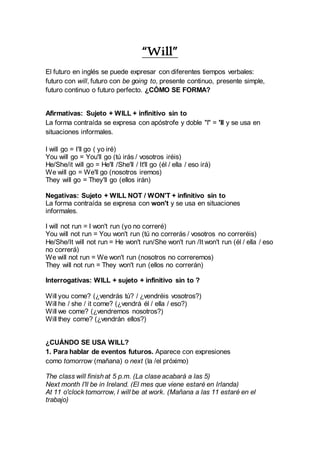El documento explica cómo se forma el futuro en inglés con el verbo "will". Se detalla que will se usa para expresar eventos futuros, predicciones, decisiones espontáneas y promesas. Se explican las formas afirmativas, negativas e interrogativas de will en singular y plural. También se especifica cuándo se usa will en comparación con be going to.










